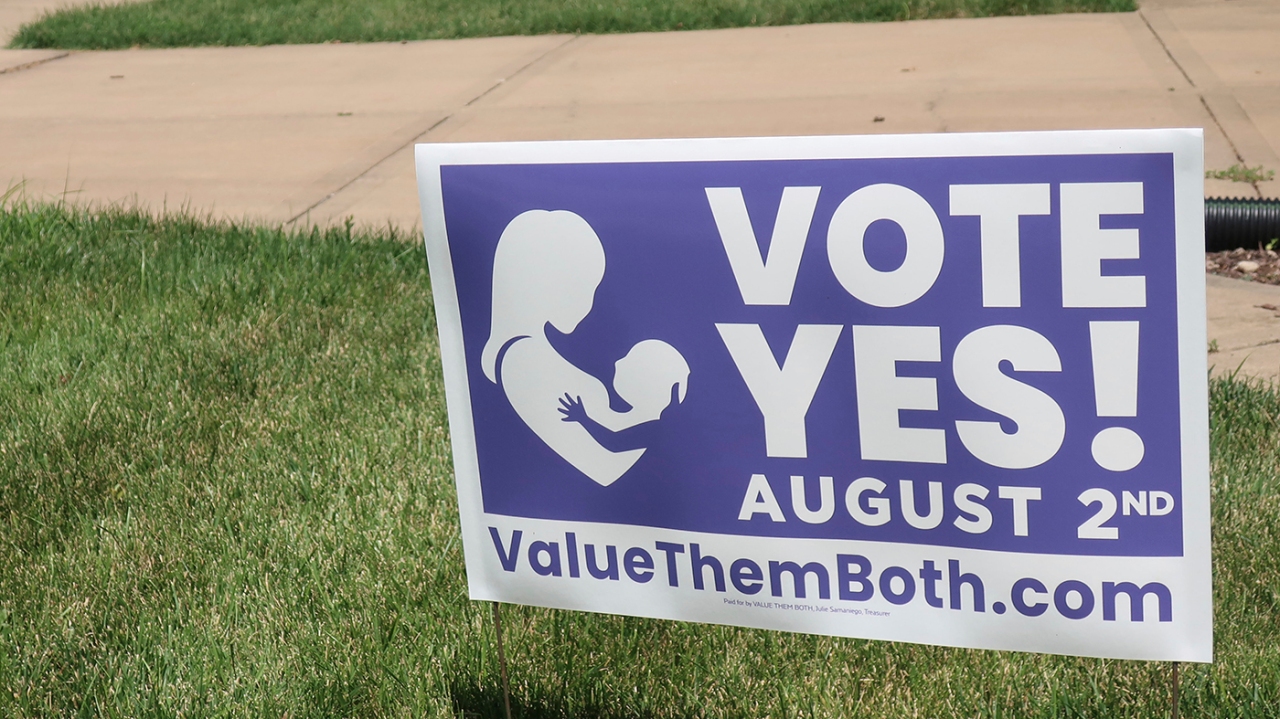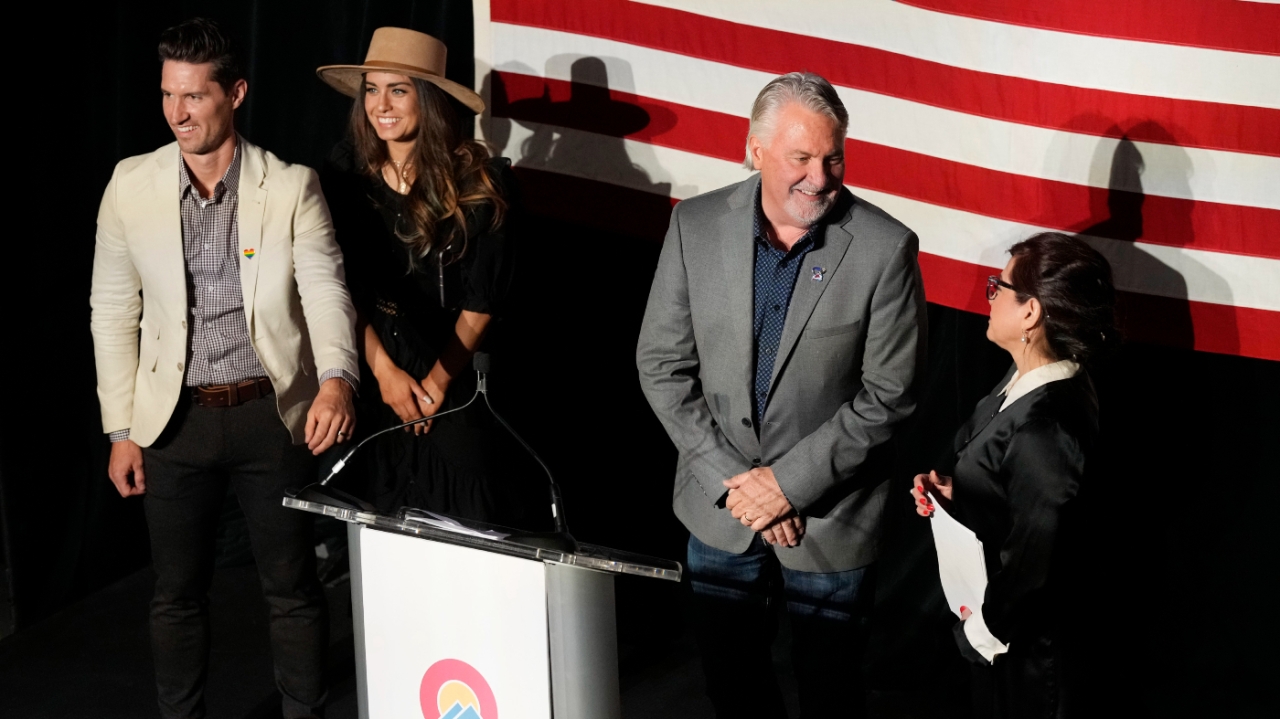Republicans are not yet sweating the idea of abortion issues swaying the midterm elections in favor of Democrats. But with Kansas voters decisively rejecting an anti-abortion ballot initiative, the room is getting warmer.
National GOP groups are brushing off the idea that the Kansas vote last week is a warning sign for November, confident that concerns about economic issues prevail as the driving force in the election.
“The economic mess Democrats created by ignoring their own economists and saddling Americans with record-high prices is the number one issue in every competitive district,” National Republican Congressional Committee communications director Michael McAdams said in a statement when asked about implications of the Kansas measure .
The Republican State Leadership Committee (RSLC), which works to elect state and down-ballot Republicans, commissioned a poll in 15 states just after the Supreme Court’s decision in Dobbs v. Jackson Women’s Health Organization striking down national abortion rights and found that 56 percent of voters named the cost of living or the economy as their most important issue, while only 8 percent named abortion.
When asked about the Kansas vote in a Newsmax interview last week, RSLC President Dee Duncan said that the economy is what is going to drive Republican wins.
Below the surface, however, Republicans are keeping an eye on how the abortion issue is affecting voter behavior, and some see risks for their candidates.
“Republicans are right to be nervous about it. But I think we still need to see more of a breakdown on the vote on, you know, who the voters were that were turning out given the margin,” Doug Heye, a veteran Republican operative, said about the Kansas election.
“In the immediate aftermath, it’s hard to take absolute lessons from this that are takeaways to project towards November,” Heye said.
The Kansas vote was the first measure testing voter response on abortion since the Supreme Court overturned Roe v. Wade, and the margin of the vote in a state that is reliably Republican in presidential elections surprised many observers: 59 percent voted against changing the state constitution to allow for potential future abortion restrictions, and 41 percent voted for it.
High turnout indicated a lot of voter enthusiasm on the issue. Unofficial results from the Kansas secretary of State’s office as of Friday showed 919,809 votes on the amendment, marking the highest number of primary votes since at least 2010 and a nearly 45 percent increase from the 2020 primary.
GOP Rep. Nancy Mace (SC) has been vocal in opposing a proposal in her state that would ban abortions without any exceptions for rape and incest. Mace, a sexual assault survivor herself, encourages other Republicans to support abortion exceptions and make that known as the Kansas measure indicates voter enthusiasm.
“Most people… they don’t want abortion up until birth for any reason. On the other side, exceptions and having some grace period is acceptable to most people. Seventy-five percent of the country wants some guardrails, but they don’t want the extremities of both sides. And Kansas is just a great example, being a red state,” Mace said.
She said that the abortion issue is “still light-years behind inflation” in terms of the top issues in her district, but that it could make a difference.
“This is definitely a top one and could be a factor in, I guess, driving momentum at the ballot,” Mace said.
A July Gallup poll found that abortion was the top issue in driving people to protest, surging 25 percent since the last time Gallup tested the question 2018.
Strategists note that voter behavior on a single-issue ballot measure is different than voters choosing between two candidates with a variety of views, and that general election voters may be less motivated by social issues.
Pro-abortion rights voters are more likely to be a factor for Republicans running in swing districts or competitive statewide races.
Even before the Kansas vote, however, some GOP candidates started to moderate their messaging on abortion restrictions.
Minnesota Republican gubernatorial candidate Scott Jenson, a physician, indicated in a May radio interview that he would support abortion exceptions only for the life of the mother, and not in cases of rape of incest. But last month, he showed support for more exceptions in a video with Republican lieutenant governor candidate Matt Birk outlining a plan that proposed increasing adoption tax credits and creating a paid family leave plan.
“If I’ve been unclear previously, I want to be clear now: Rape and incest along with endangering the mother’s mental or physical health are acceptable exceptions,” Jensen said in the video.
Pennsylvania GOP gubernatorial nominee Doug Mastriano, who in May told a reporter that a “baby deserves a right to life whether it is conceived in incest or rape,” in the aftermath of the Dobbs decision overturning Roe v. Wade has called the issue of abortion a “distraction” and argued that he is not the decision-maker on the issue.
“In many ways, my personal views are irrelevant in the effect that I can’t do anything with abortion because it’s codified in law,” Mastriano said in a recent radio interview.
“I think people should be as specific on that issue as they’re able to be, because if they’re not the Democrats are just going to try and lump them into some, you know, supposed extreme category,” said a Republican campaign consultant who requested anonymity to speak candidly. “If you’re in a district or a state where perhaps you’re on the wrong side of that issue, being more specific can be helpful.”
Republicans with hard-line stances on abortion bans remain prominent in the party overall.
In Indiana last week, a majority of state House Republicans voted to support banning abortions in cases of rape and incest, and around half voted in favor of removing exceptions for abortion in cases of fetal abnormalities. The exceptions remained in a near-total abortion ban bill due to support from Democrats.
Those pursuing abortion bans without exceptions could pose a risk for other candidates in the November election.
“Republicans should want the conversation to always be about those things that have driven Biden’s approval rating down, and that starts with inflation. That’s rising crime. That’s the situation at the border,” Heye said. “So when you have, you know, state legislatures or you know, ballot initiatives that take Republicans’ eye off the ball, that’s politically going to be a mistake.”
.


